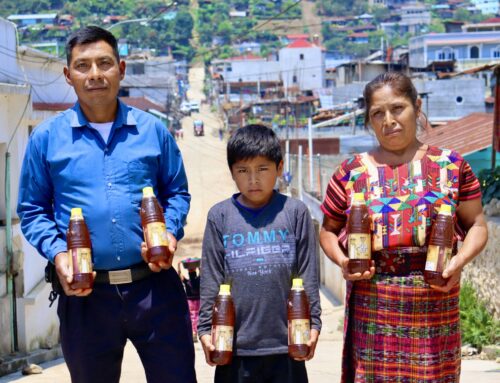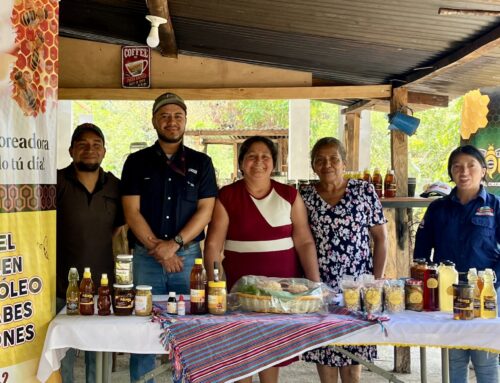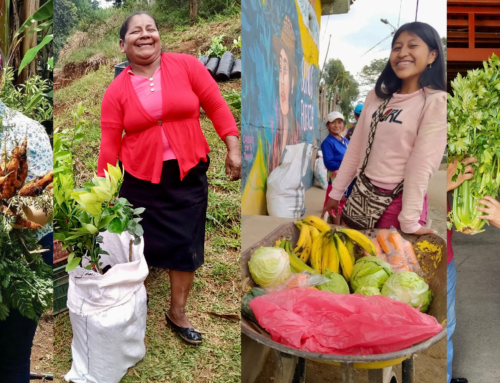by Cody Gallagher
Since 2014, the International Coffee Organization (ICO) has made October 1 a global celebration of the love of and passion for coffee. The ICO uses the day to bring awareness to key issues facing the coffee industry. This year’s theme, “Coffee’s Next Generation,” promotes more investment in coffee’s youth – and encourages older members of our community to listen to their innovative ideas. With the average age of coffee farmers continuing to rise as more young people from farming communities seek alternate career paths, we’re left to wonder who will be growing coffee in 15 years.
Much of the current thinking about incentivizing youth to produce coffee has been based on making coffee growing more lucrative. Initiatives have focused on increasing coffee productivity, improving coffee quality, and creating greater access to markets. But most of the small-scale coffee-farming families we work with live on as little as $0.50 per person per day — well below the Global Poverty Line of $1.90 — making growing coffee a risky career choice.

A student in our school garden program in Nicaragua shows the beautiful progress of the garden’s pepper plants.
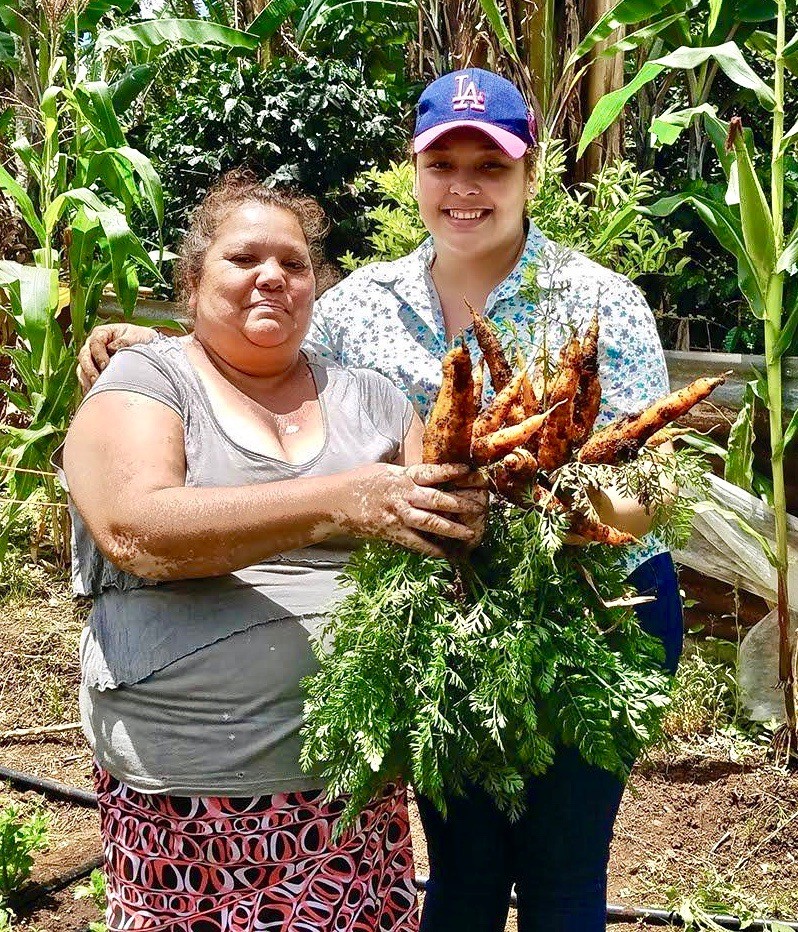
Lilliam Pérez (right), SOPPEXCCA’s food security coordinator, and coffee farmer Sandra Obando, hold up their harvest of carrots.
This risk reflects a host of factors. First, a volatile coffee market rarely prioritizes farmers. And increasing productivity can diminish biodiversity on farms, leaving farmers more dependent on a single crop and more vulnerable to climate change. In the face of climate change, a global pandemic, crop disease, low coffee prices, and political strife, a more holistic approach is needed. To us, that means investing in the people who grow coffee, rather than just in coffee.
Although I’m a member of coffee’s next generation, I have no direct experience with the challenges faced by young adults in farming communities who are abandoning coffee. Our experiences have been vastly different, as have our lives outside of coffee. Their role in the supply chain is exceedingly undervalued, and the tools and resources they need to make coffee farming sustainable have been largely absent. Learning about these injustices through my work in the coffee industry is in part what led me to find Food 4 Farmers.
Like many who work in coffee, I didn’t intend to pursue it on a professional level — my interests have always been rooted in food. An early drive to become a chef pivoted to studies in sustainable food systems once I went to college. Through civic engagement projects at school, I found I enjoyed working on collaborative projects with community members and leaders to design solutions for their resilience relating to food and the environment. While in school, however, one cafe job led to the next, and I eventually became responsible for business development and green coffee buying for Sparrows Coffee.
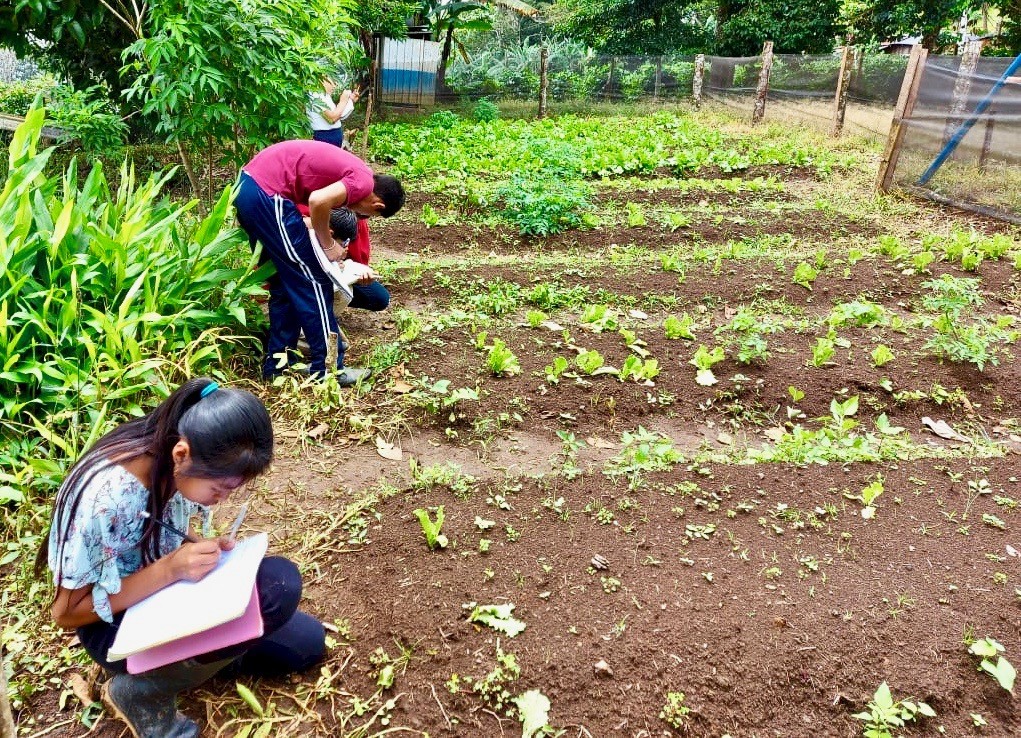
Students in our Nicaragua school garden programs take part in experiential learning.
Though I loved my role with Sparrows, I felt a call back to food. In a classic case of the COVID-induced quarter-life crisis, I completed coursework in non-profit fund development at Notre Dame, with a goal to build capacity for organizations who address injustices in food. Through the close-knit community of coffee, I was quickly connected with Food 4 Farmers. It soon became apparent how well their mission aligns with my studies, coffee industry experience, and ambition to advocate for fair food.
Now, after several months with their team, I’ve begun to feel a new level of fulfillment, engagement, and connection through my work.
I believe people in my generation — including young coffee farmers and the children of farmers — have in common a desire for work of this nature. The global economy we’ve grown up in lets us see the interconnectedness of people around the world, and we want to work toward filling leadership roles, if given the opportunity. We want to provide value, and to be valued for the work we do, beyond just our wages (though we do like those, too). In her article The Fallacies of “Youth”: Finding New Solutions for Young People in Coffee Growing Communities, Joanna Furgiuele writes that “money does not necessarily equal purpose. Coffee needs to be a compelling and inspiring way of life. If a young person does not feel valued, price alone may not be enough for them to choose coffee as their livelihood.”
A key opportunity to value the work of young people is to invest in their professional development for both the short and long term. I’m prepared for my current communications work at Food 4 Farmers because of opportunities I’ve had in the past to get marketing and sales training, attend events like food business summits, learn about the coffee supply chain through green buying, travel to coffee-growing communities, and even apprentice at a 3 Michelin Star restaurant for a month (you learn a humbling number of life and professional lessons working in high stakes dining establishments).

Me, cupping through a table of coffees at Sparrows Coffee’s cupping lab.
If cross-disciplinary investments like these were made in coffee-farming communities, their younger members might be more interested in staying in coffee. I hope that as Food 4 Farmers’ investments in young people grow over time, they’ll have the same kinds of opportunities I’ve benefited from, and more choices about how they want to work and live.
Investing in people is at the heart of Food 4 Farmers’ food security and livelihoods approach. We aim to connect farming communities with the tools and resources they need to have more control over how they live and earn their living. By diversifying farms and livelihoods, farming families will be better off if one source of income unexpectedly falls through. With control and choices, the next generation of coffee-farming families will continue to grow coffee if it proves to be viable. We don’t claim to have a fit-all solution, but we’ve seen the powerful results of connecting young people with the resources they need to bring to life their innovative ideas and programs.
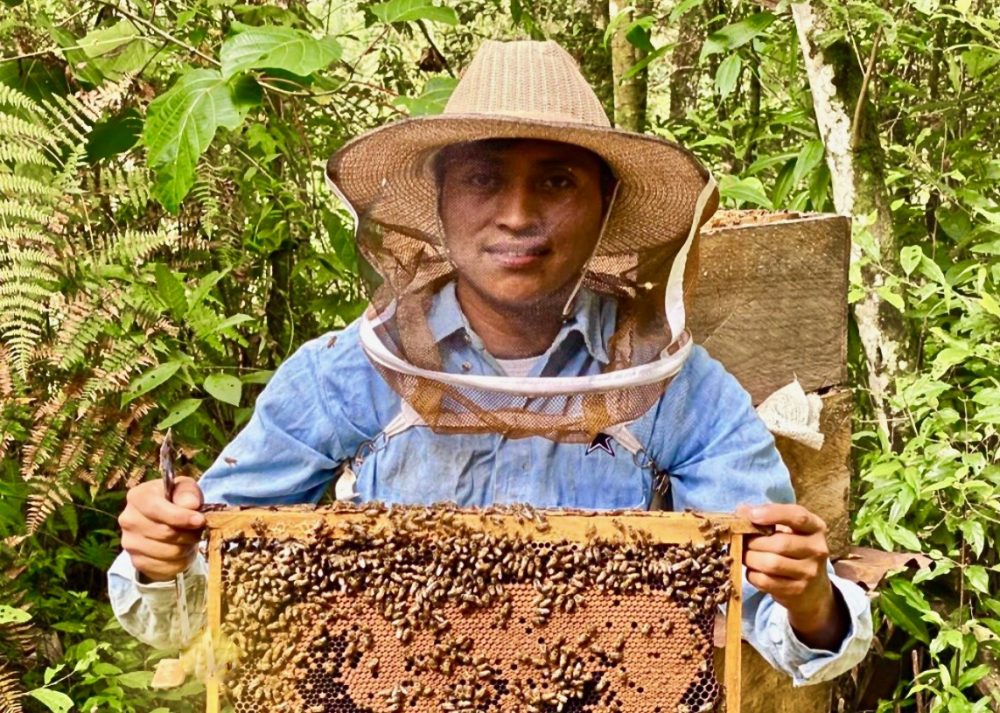
Young coffee farmer and beekeeper Pedro Salucio Alvarado shows off one of the 50 beehives he manages for ACODIHUE.
So that everyone in coffee can enjoy International Coffee Days to come, I urge us all to take action now. You can support the next generation of coffee farmers, entrepreneurs, and community leaders by making a donation today – or by signing up to be a Sustaining Partner.
Happy International Coffee Day! Here’s to many more to come.


